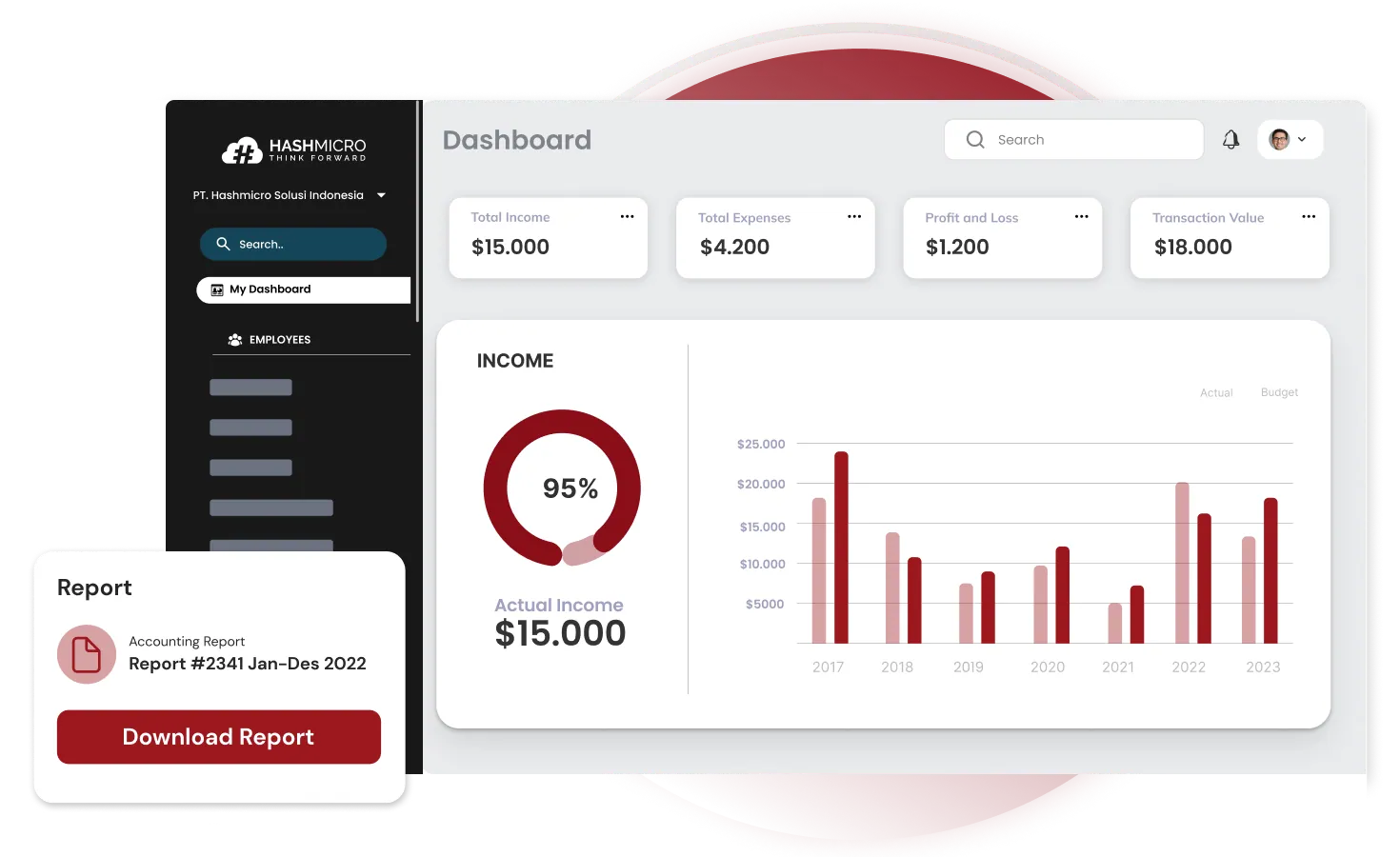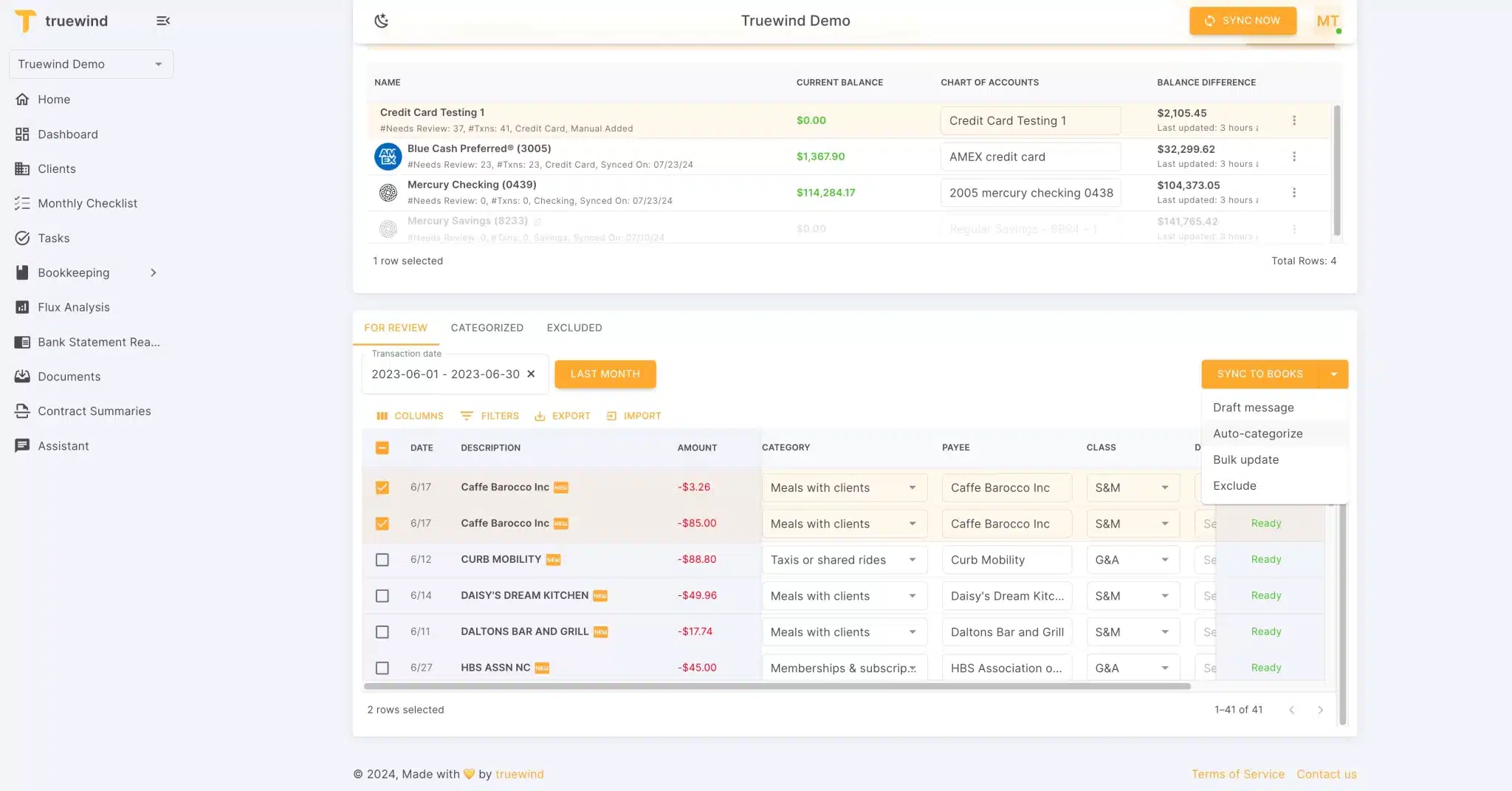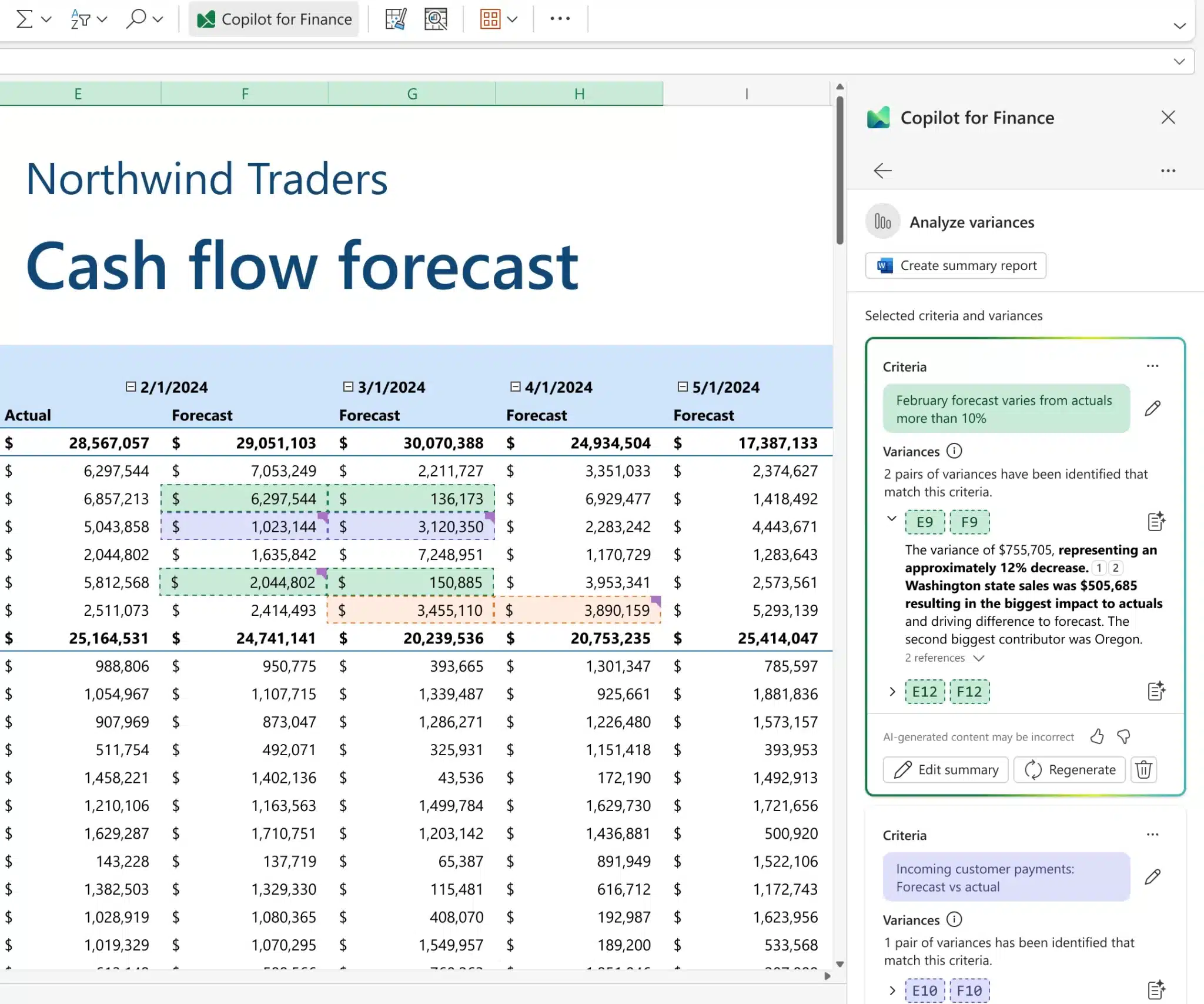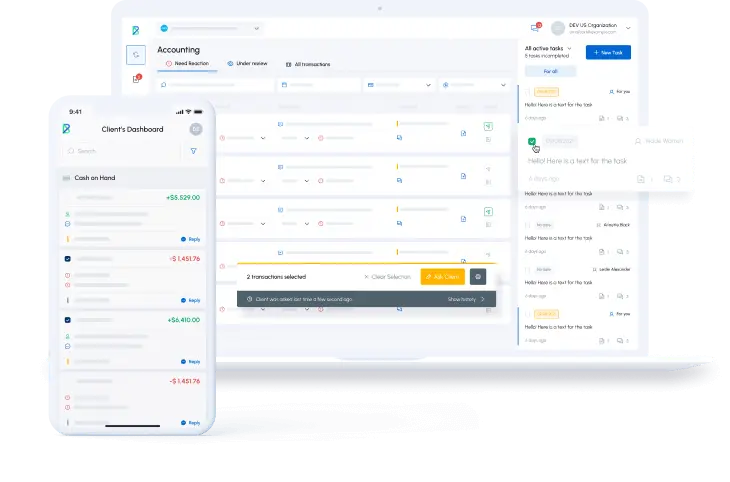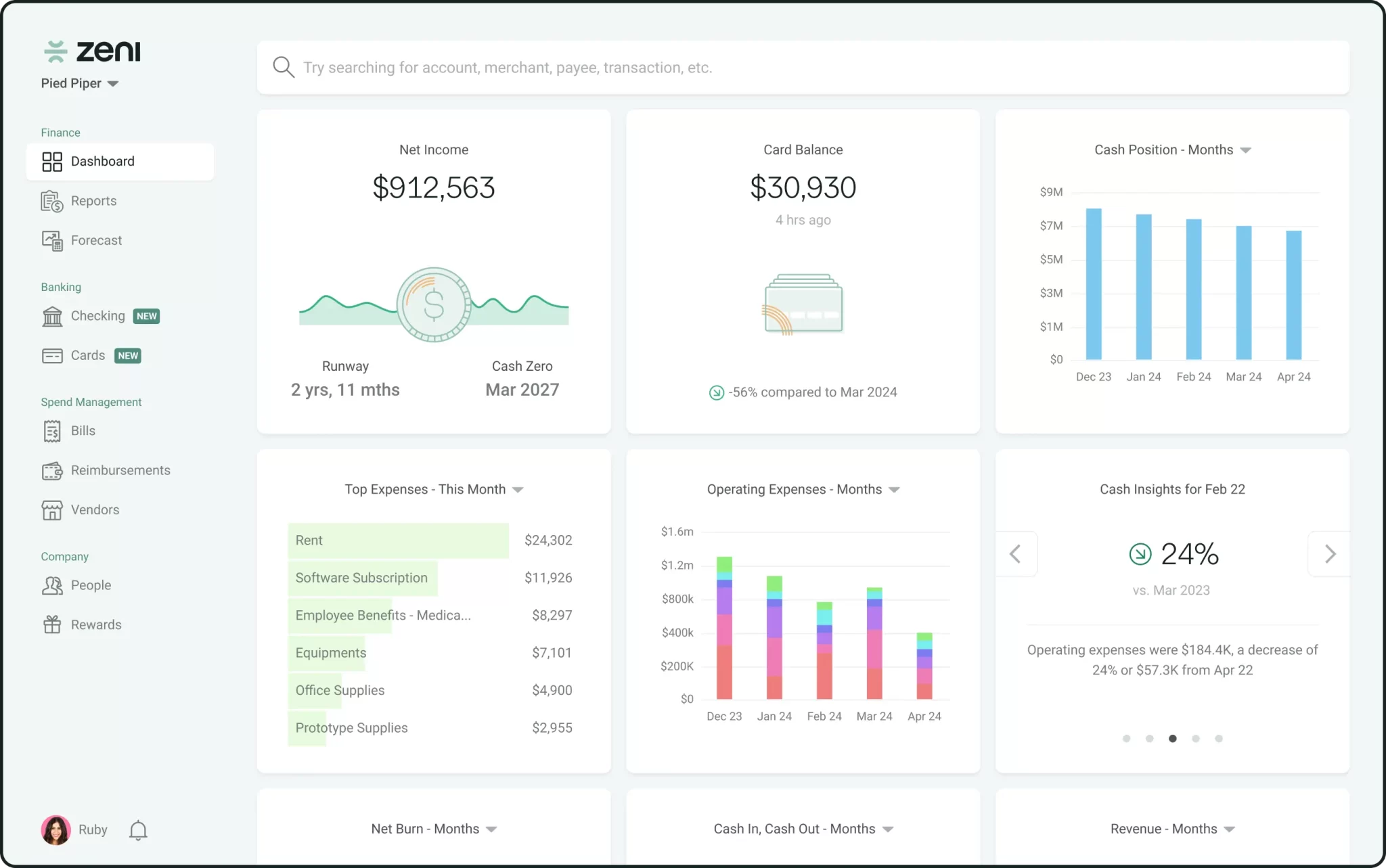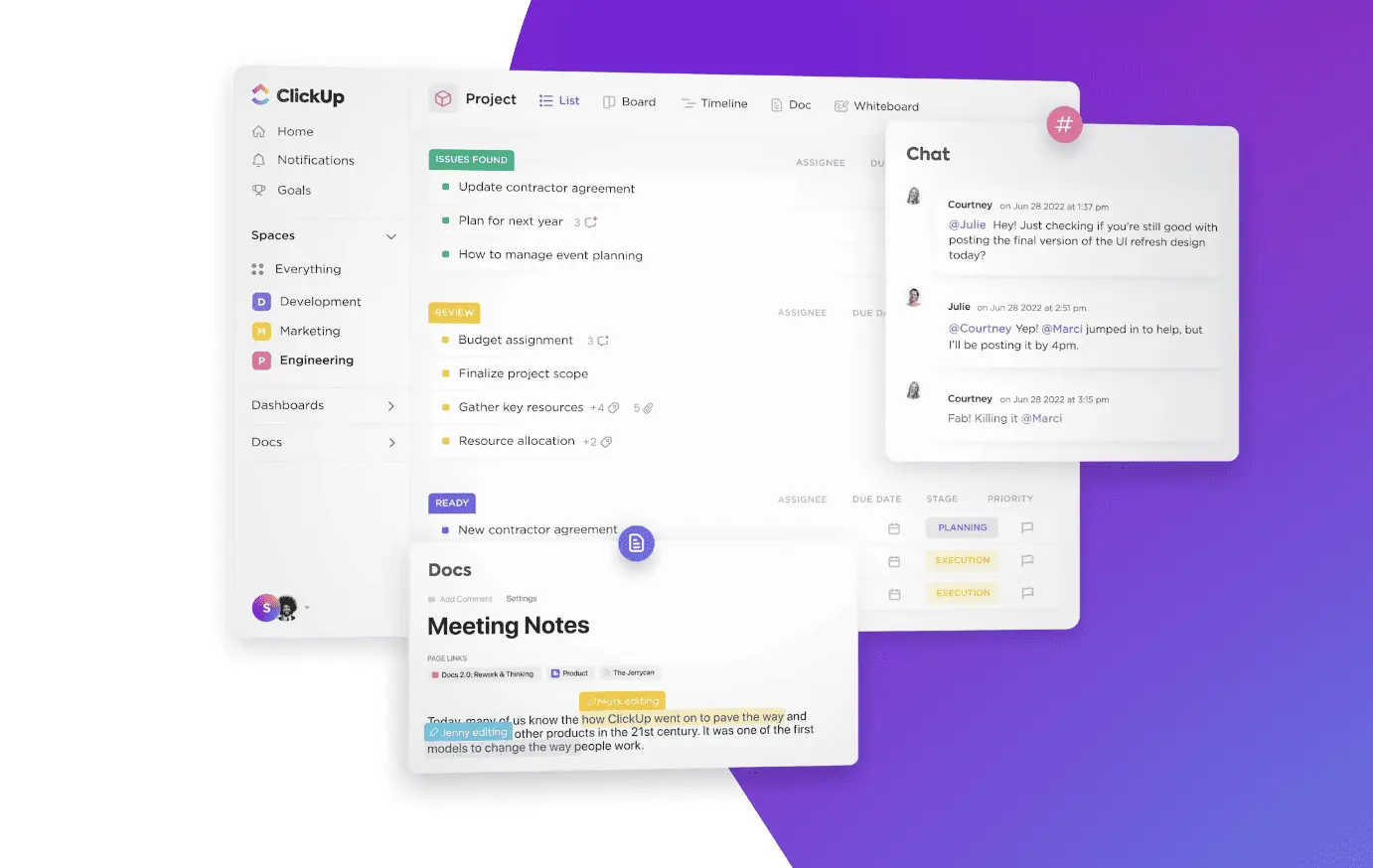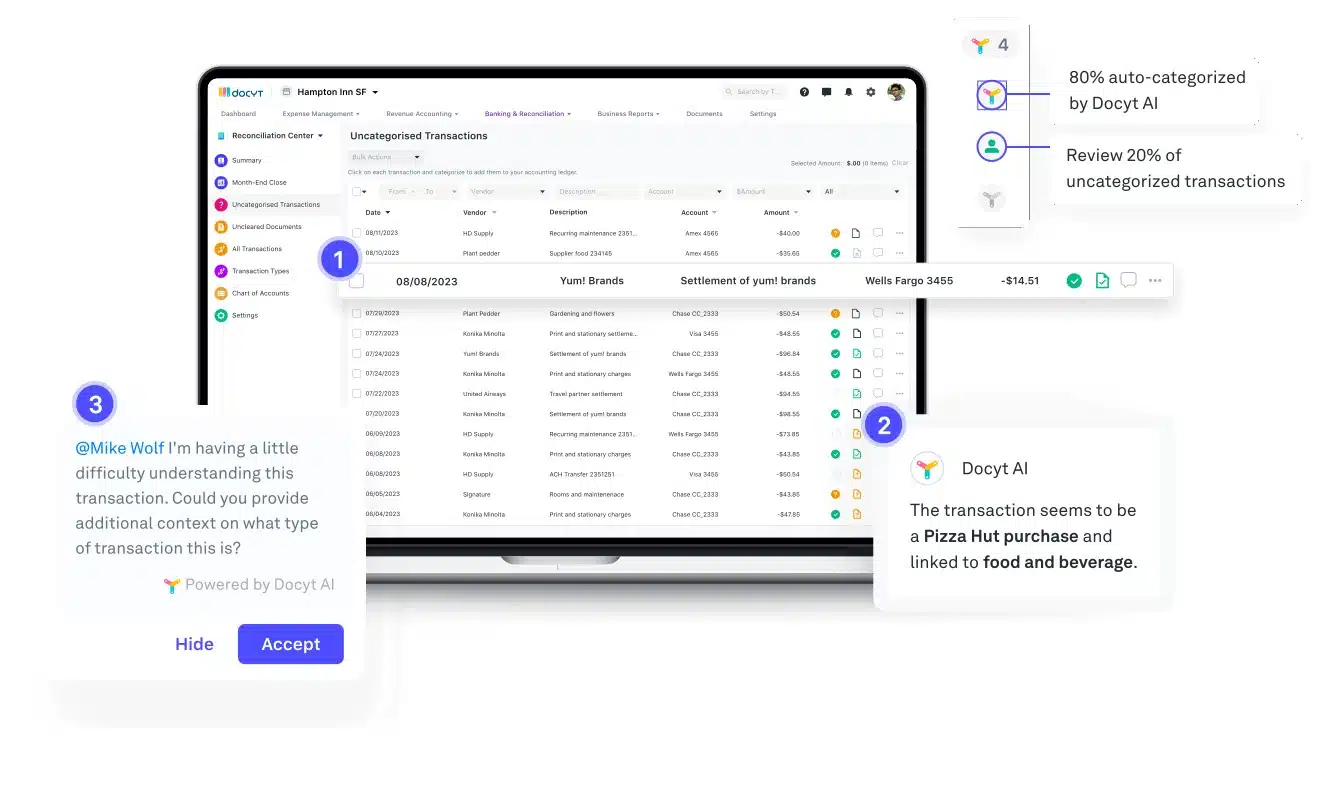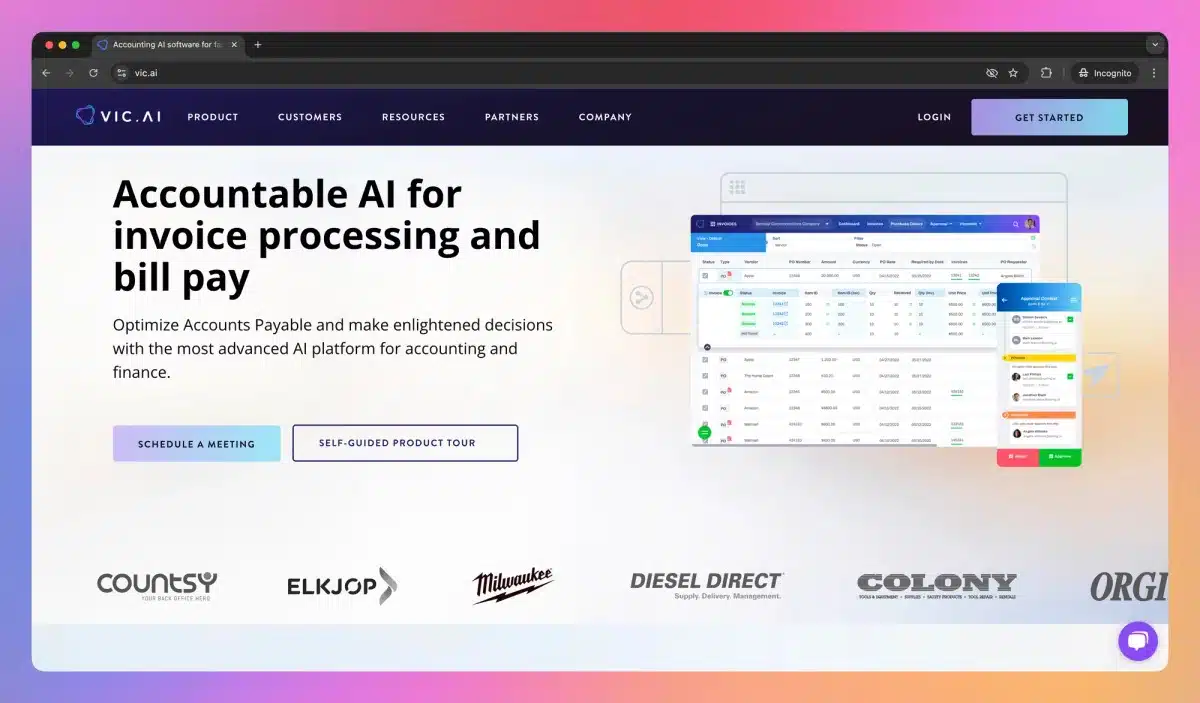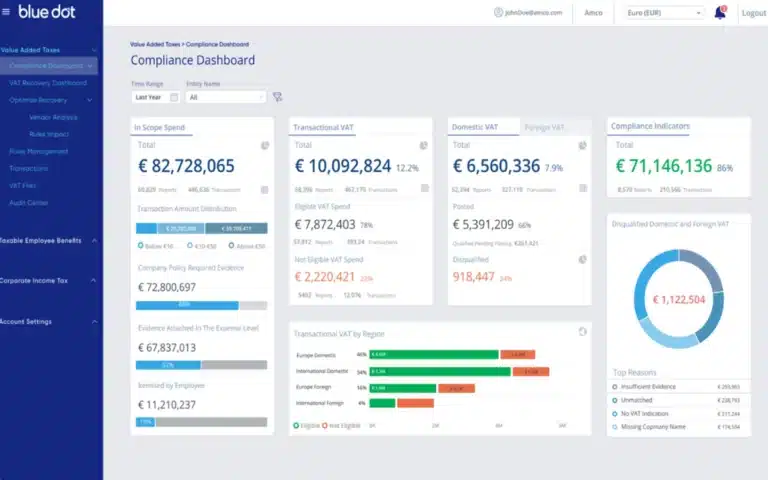Managing finances is one of the most challenging aspects of running a business. From tracking expenses to ensuring accurate reporting, even small mistakes can lead to significant issues later.
That’s where AI for accounting comes in. AI accounting software offers smart, automated solutions to simplify financial management and minimize human error. It helps streamline your financial processes and improve overall efficiency.
Which software is right for your company? Keep reading to discover the 12 best AI accounting software available in Singapore!
Table of Content:
Table of Content

Key Takeaways
|
What is AI in Accounting?
AI in accounting refers to using artificial intelligence technologies to automate, enhance, and optimize accounting tasks previously done manually by accountants. It uses machine learning, data analytics, and natural language processing to handle tasks like data entry, invoice processing, financial reporting, and fraud detection.
There are many benefits of using AI in accounting. The benefits of AI in Accounting are:
- Reduces human error
- Improves accuracy
- Speeds up workflows
- Provides more insightful financial analysis
- Enhances decision-making with data-driven insights
- Helps businesses stay compliant
AI for accounting enables accountants to focus on more strategic activities like financial analysis, decision-making, and consulting rather than on repetitive tasks. It allows them to provide greater value to clients and businesses by leveraging their expertise for higher-level work instead of spending time on manual processes.
How AI is Used in Accounting
AI is transforming the accounting industry by automating various tasks. Here are some of the primary ways AI is used in accounting:
1. Automating data entry
AI uses machine learning algorithms to automatically capture and input financial data from receipts, invoices, and other documents into accounting systems. It reduces the need for manual data entry, minimizing errors and saving time.
2. Invoice and expense processing
AI-powered software uses OCR (optical character recognition) and NLP (natural language processing) to scan invoices and receipts, extract relevant data, and match it to transactions in the accounts payable system, speeding up processing and reducing manual verification.
3. Financial reporting
AI tools use data analytics and pattern recognition to quickly process large volumes of financial data, generating accurate financial statements, reports, and forecasts. These tools can identify trends and anomalies, helping businesses make well-informed decisions based on real-time data.
4. Fraud detection
AI uses anomaly detection algorithms to continuously analyze transaction data and identify unusual patterns or behaviours that could indicate fraud. By flagging suspicious activities, AI helps businesses take immediate action to prevent financial losses.
5. Tax preparation
AI leverages tax algorithms and machine learning to analyze financial data, ensuring all calculations comply with tax regulations. It can also automatically identify potential deductions or errors, making the tax filing process faster and more accurate.
6. Predictive analytics
AI uses historical financial data, statistical models, and machine-learning techniques to forecast future economic performance. By recognizing patterns in past transactions, AI can generate accurate predictions, enabling businesses to plan and make strategic decisions based on future trends.
By leveraging AI and advanced financial reporting software, accountants can streamline workflows, reduce costs, and focus on more strategic, value-added tasks like financial analysis and business consulting.
Hashy AI Fact

Need to Know
Hashy AI Finance is the ideal solution for businesses ready to elevate their accounting. It offers AI-powered automation, real-time tracking, and intuitive dashboards that streamline operations and support faster decisions.
Request a free demo today!
What to Look for in AI Accounting Tools
When searching for the best AI tools for accounting, evaluating several key factors is important to ensure the software aligns with your business needs. Below are the key features to consider when selecting AI accounting tools:
1. Integration with other software
Integrating seamlessly with your existing software systems, such as payroll, CRM, or ERP systems, is crucial. This ensures smooth data flow between platforms, reducing the need for manual data entry and helping maintain consistency across your business processes.
2. Providing templates
AI accounting tools that offer customizable templates can save time by providing pre-built formats for financial statements, invoices, or tax filings. These templates allow businesses to easily generate reports and documents without starting from scratch each time.
3. Machine learning
Machine learning allows AI accounting tools to improve performance by analyzing historical data and continuously identifying patterns. This feature enables the software to predict financial trends, automate tasks, and offer smarter insights for better decision-making.
4. Automated bookkeeping
AI bookkeeping software automates data entry and transaction categorization, reducing human error and saving time. It allows accountants to focus on higher-value tasks. This is especially useful for small or growing businesses that need accurate records without constant manual work.
5. Automated invoice processing
AI-powered tools can automatically scan, extract data from, and process invoices using technologies like OCR and NLP. It streamlines the accounts payable process by matching invoices to purchase orders, flagging discrepancies, and ensuring timely payments.
12 Best AI Tools for Accounting in Singapore
With the growing complexity of financial management, businesses need smarter solutions to stay efficient and accurate. To help you find the right solution, here are 12 of the best AI accounting tools in Singapore that can streamline your financial processes.
1. HashMicro Hashy AI for Accounting
HashMicro provides Singapore’s leading AI-powered accounting system, designed to meet the needs of various industries while integrating the latest technological advancements. With over 2,000 clients, HashMicro serves F&B, retail, mining, and more sectors across Southeast Asia.
HashMicro’s Hashy AI for Accounting combines cloud accounting software with AI to automate bookkeeping, invoicing, and financial reporting. Seamlessly integrated with ERP and payroll systems, it delivers real-time insights and analytics that help businesses minimize errors, simplify financial management, and focus on strategic growth.
As Singapore’s leading AI-driven solution, Hashy AI automates mundane tasks, acts as an analyst to give key insights, reminds people about key activities, simplifies the actions needed, and acts as an agent.
Companies across Singapore need agile and intelligent solutions to manage their finances efficiently. HashMicro’s Hashy AI for Accounting offers cutting-edge features that streamline financial operations.
Those prominent features of HashMicro’s Hashy AI for Accounting include:
- AR collector: Automates customer follow-ups on invoices and statements of account (SoA) to improve collection efficiency.
- On-the-go invoicing: Enables businesses to create and send invoices instantly for faster transactions.
- Account payables management: Communicates seamlessly with vendors to track and update outstanding payables.
- Financial insights analysis: Provides key insights from financial reports to support data-driven decision-making.
- Budget planning: Uses past financial trends to assist in accurate and strategic budget forecasting.
- Bank reconciliation: Matches bank statements with system records to ensure financial accuracy and compliance.
| Pros | Cons |
| ✓ Efficiency increased
✓ Versatile solution ✓ Unlimited users ✓ User friendly ✓ Dedicated sales and customer service team ✓ Integration and customization options |
× It is unsuitable for small businesses and potentially has a long learning curve.
× There is a long queue for the free demo. |
If you adopt digital solutions like HashMicro, your businesses can take advantage of the CTC Grant, which covers up to 70% of the implementation. So, it is making innovation more accessible and cost-effective.
Download our pricing scheme below to delve deeper into HashMicro’s Hashy AI for Accounting.
2. Truewind
Truewind is an AI-powered finance and bookkeeping platform for small businesses and startups. It delivers precise monthly reports and industry-specific financial solutions to support business growth.
Truewind prominent features include the following:
- Accrual work papers: It simplifies creating and managing work papers, reducing the manual effort involved in this critical but tedious task.
- Contract management: Utilizes OCR technology to automatically extract key terms from complex sales contracts, improving accuracy and efficiency.
- AI assistant: Acts as a virtual accountant, identifying anomalies and providing valuable financial insights
| Pros | Cons |
| ✓ Automate operations
✓ Simplify financial processes ✓ Make informed business decisions |
× Limited user feedback on major review platforms
× No publicly available pricing or subscription details. |
3. Microsoft Copilot
Microsoft Copilot is an AI-driven assistant that boosts productivity across Microsoft 365 applications. In accounting, it streamlines data analysis and automates financial tasks within Microsoft Excel.
Microsoft Copilot’s prominent features include:
- Automated data analysis: Identifies trends and detects errors directly in Excel.
- Seamless collaboration: Integrates with Microsoft Teams for efficient financial discussions on budgeting and planning.
- AI-powered insights: Uses NLP to respond to accounting queries, providing data interpretation and insights.
| Pros | Cons |
| ✓ Enhanced productivity
✓ Improved collaboration ✓ Streamlined workflows |
× High costs
× Limited customization × Reliance on the Microsoft ecosystem |
4. Booke
Booke is an AI-powered bookkeeping automation tool designed to simplify daily accounting tasks. It leverages AI to reconcile errors and extract real-time financial data, improving accuracy.
Booke prominent features include:
- AI-driven automation: Use AI to correct coding errors, categorize transactions, and streamline client communication.
- Faster month-end close: Boost efficiency with AI-powered automation for closing tasks.
- Instant error detection: With advanced AI tools, identify and fix financial discrepancies in seconds.
| Pros | Cons |
| ✓ Enhanced productivity
✓ Streamlined documentation ✓ AI integrated |
× Client minimum requirement per pricing tier
× Limited user feedback |
5. Zeni
Zeni leverages AI to automate accounting, spending, and budgeting, optimizing financial operations with real-time data analysis. Combining AI with human expertise delivers accurate insights for better decision-making.
Zeni’s prominent features include the following:
- Comprehensive financial overview: Gain a top-down view of your finances with a single-page dashboard.
- Performance tracking: Compare monthly, quarterly, and yearly reports to monitor progress and spot trends.
- Automated data extraction: Capture receipt data and forward it to a dedicated email for easy consolidation.
- Seamless team collaboration: Enhance communication with computerized updates and real-time notifications.
| Pros | Cons |
| ✓ Enhanced productivity
✓ Limits manual work ✓ Enhanced communication |
× More guidance is needed on reviewing and processing data.
× It may be costly for small-scale businesses. |
6. ClickUp
ClickUp Accounting is a cloud-based business management software that streamlines financial processes. It enables account management and report sharing and leverages ClickUp Brain as a digital assistant, allowing you to focus on strategic planning.
ClickUp prominent features include:
- AI-powered assistance: Let ClickUp Brain summarize meetings, connect with clients, outline audit policies, and update sales forecasts.
- Automated workflows: Utilize over 100 ClickUp Automations to streamline back-office tasks.
- Customizable dashboards & tracking: Switch views, create personalized dashboards, and track project time for optimized workflows.
| Pros | Cons |
| ✓ AI integrated
✓ Enhanced productivity ✓ Simplify tracking |
× Steep learning curve
× Has an additional fee |
7. Docyt
Docyt’s AI accounting software streamlines expense management, receipt processing, and document organization. Its AI accountant, Gary, integrates chatbot functionality with automation to reconcile accounts and generate reports effortlessly.
Docyt’s prominent features include the following:
- Adaptive learning: The AI assistant improves accuracy by analyzing past invoices, receipts, and transactions.
- Tailored bookkeeping: Customizes accounting processes to fit various industries.
- Smart data extraction: Automatically captures and categorizes details from receipts and invoices.
| Pros | Cons |
| ✓ AI integrated
✓ Enhanced productivity ✓ Streamlined documentation |
× High pricing
× Limited integrations × Steep learning curve |
8. Vic.ai
Vic.ai is an AI-powered invoice processing tool that automates billing with advanced machine learning algorithms. It extracts key details, detects duplicates, and streamlines approvals without requiring templates or custom rules.
Vic.ai prominent features include:
- Seamless ERP integration: Sync financial data automatically with leading ERP tools.
- Error detection: Minimize human error by flagging duplicate invoices and accounting discrepancies.
- Automated tax handling: Recognize, code, and calculate VAT and other taxes for improved compliance.
- Data-driven insights: Enhance financial decision-making with real-time analytics and reports.
| Pros | Cons |
| ✓ AI integrated
✓ Streamlined documentation ✓ Reduced manual work |
× No public pricing details
× Costly for freelancers and small businesses. × Need more sorting and reporting options to enhance efficiency. |
9. Gridlex
Gridlex offers a unified suite of business tools, including Gridlex Sky, an AI-powered accounting, expense management, and ERP software designed to simplify financial processes.
With Gridlex Sky, businesses can manage accounting, expenses, and ERP operations through customizable automation and AI-driven insights. It streamlines invoicing, billing, payroll, general ledger management, and more, ensuring efficient financial management.
Gridlex’s prominent features include the following:
- Automated financial calculations: Reduce manual work and minimize errors with automated profitability, revenue, and expense calculations.
- Effortless expense management: Organize and store receipts and expense claims easily through an intuitive interface.
- Streamlined approvals & reimbursements: It automates expense approvals and reimbursements to reduce administrative workload.
| Pros | Cons |
| ✓ Enhanced productivity
✓ Streamlined documentation ✓ Reduced manual work |
× Limited user feedback
× Restricted features |
10. Scribe
Scribe is a documentation tool for accounting teams to create step-by-step guides and share best practices efficiently. Its AI-powered features automate content generation, ensuring consistent internal documentation with minimal manual effort.
Scribe prominent features include:
- Real-time automated documentation: Captures workflows instantly and generates step-by-step guides without manual effort.
- Seamless collaboration: Enables teams to share guides and manuals effortlessly.
- Version control: Tracks updates to ensure documentation stays current and aligned with best practices.
| Pros | Cons |
| ✓ Increased efficiency
✓ Improved documentation ✓ Limits manual effort |
× Need for ongoing training
× Need to adjust workflow |
11. Blue Dot
Blue Dot is an AI-powered tax compliance platform designed to help businesses maintain financial accuracy and regulatory compliance. Using patented technology minimizes tax-related risks in business expenses and provides a comprehensive view of employee-driven transactions.
Blue Dot’s prominent features include the following:
- VAT box: Identifies and calculates eligible VAT expenses for accurate tax reporting.
- Taxable employee benefits: Utilizes AI to detect and analyze wage tax data efficiently.
- Expense management automation: Applies AI-driven tax checks and rules to ensure compliance.
- Corporate income tax reports: Generates compliance-ready reports with minimal manual effort.
| Pros | Cons |
| ✓ Enhanced productivity
✓ Minimal manual effort |
× Limited user reviews
× No public pricing information |
12. Botkeeper
Botkeeper leverages machine learning to automate bookkeeping processes efficiently. It offers a budget-friendly accounting solution while integrating AI-driven automation across various workflows.
Botkeeper’s prominent features include the following:
- Automated bank reconciliation: Syncs with internal records for seamless transaction matching.
- Bot review: Scans the general ledger to detect discrepancies, ensuring data accuracy.
- Activity hub: Centralizes client communication, feedback, and interactions in one platform.
| Pros | Cons |
| ✓ Enhanced productivity
✓ Collaboration improvement ✓ AI integrated |
× Initial setup costs
× Reliance on software × Need to adapt to the software’s functionalities ecosystem |
Conclusion
AI for accounting is essential for your business. By leveraging AI-powered tools, companies can streamline workflows, reduce manual effort, and focus on strategic growth. AI accounting software ensures efficiency, compliance, and better financial insights.
Implementing reliable AI accounting software enhances accuracy and streamlines financial management. Hashy AI for Accounting leverages AI-powered features to automate key accounting processes, improve data accuracy, and optimize financial decision-making for businesses.
Book our free demo now to see how HashMicro’s AI-powered accounting software can streamline your financial processes and enhance efficiency!

Frequently Asked Questions About AI for Accounting
-
What are the applications of AI in accounting?
AI is widely used in accounting to enhance forecasting, automate scheduling, process invoices, improve business communication, and streamline workflow management.
-
What are the limitations of AI in accounting?
AI cannot replace human judgment and expertise. While it can analyze vast amounts of data, it cannot make complex decisions that require human intuition, ethical considerations, and professional experience.
-
Is AI beneficial for accounting?
AI offers significant benefits in accounting, particularly in intelligent financial analysis. By processing large datasets, AI can identify trends, detect discrepancies, and recognize patterns, providing valuable insights to help accounting professionals make informed decisions.




